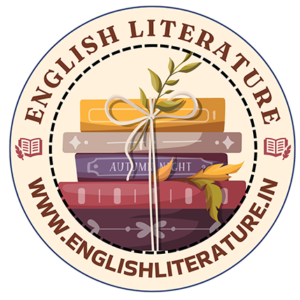R. Parthasarathy: An Iconic Literary Figure
R. Parthasarathy (born 1934) is a celebrated Indian poet and translator whose work bridges the gap between tradition and modernity. Best known for his seminal collection Rough Passage, Parthasarathy explores themes that resonate with cultural and personal conflicts. His contributions to Indian English literature remain unparalleled, inspiring generations of poets and translators worldwide.
Early Life and Education
Born in 1934 in Tamil Nadu, R. Parthasarathy’s upbringing played a pivotal role in shaping his literary career. Immersed in Tamil culture, he was deeply influenced by the rich traditions of Tamil poetry and classical literature. Parthasarathy’s educational journey began in Chennai, where he displayed a remarkable aptitude for languages. Later, he pursued higher education in English literature, which laid the foundation for his poetic and translational endeavors.
Transition to Poetry and Translation
Parthasarathy’s love for poetry blossomed during his university years. Inspired by both Indian and Western poets, he began crafting verses that combined the lyrical depth of Tamil traditions with modernist sensibilities. Translation, however, emerged as an equally significant aspect of his career. He viewed translation not merely as a linguistic exercise but as a cultural bridge that connects diverse literary landscapes.
A Glimpse into Rough Passage
Overview of the Collection
Rough Passage is a poetic trilogy that encapsulates Parthasarathy’s journey through self-discovery, cultural dissonance, and existential reflections. The collection is divided into three sections: Exile, Trial, and Homecoming, each exploring different facets of his internal and external conflicts.
Structure and Themes
The trilogy is a masterclass in thematic depth and structural innovation. Through vivid imagery and poignant language, Parthasarathy captures the essence of identity, alienation, and reconciliation. The recurring motif of a journey—both literal and metaphorical—binds the collection together.
Conflict Between Tradition and Modernity
One of the central themes of Rough Passage is the tension between Indian traditions and modern Western influences. Parthasarathy’s poetry navigates the complexities of preserving cultural heritage while embracing the inevitability of change. His work reflects his personal struggles with these conflicting forces, making his poetry deeply relatable and timeless.
Indian Culture in Parthasarathy’s Work
Role of Heritage
Parthasarathy’s Tamil heritage is a cornerstone of his poetic identity. His verses often draw from classical Tamil literature, embedding ancient wisdom within a contemporary framework. This synthesis highlights the enduring relevance of India’s cultural treasures.
Influence of Tamil Literary Tradition
His translations of Tamil poetry into English have brought global recognition to ancient Tamil texts. By introducing the world to these masterpieces, Parthasarathy underscores the universal appeal of regional literature.
Modernity and Western Influence
Adoption of Modern Poetic Techniques
Parthasarathy’s work incorporates free verse, fragmented structure, and stream-of-consciousness narration, hallmarks of modernist poetry. These techniques lend his poems a dynamic and contemporary feel, bridging the gap between tradition and innovation.
Balancing Global and Local Perspectives
His ability to harmonize global literary influences with local cultural contexts sets him apart. Parthasarathy’s poetry serves as a dialogue between civilizations, enriching both Indian and global literary traditions.
Parthasarathy as a Translator
Contributions to Tamil Literature
R. Parthasarathy is celebrated for his translation of The Tale of an Anklet (Silappadikaram), a Tamil epic. His meticulous attention to detail and poetic flair make his translations both authentic and accessible.
Challenges and Achievements
Translation is fraught with challenges, including retaining the essence of the original while ensuring readability. Parthasarathy’s translations stand out for their fidelity and literary merit, bridging linguistic and cultural gaps.
Language and Identity in His Work
Exploration of Multilingualism
Parthasarathy’s multilingual proficiency enriches his poetry. His works often weave Tamil, English, and Sanskrit, reflecting the linguistic diversity of India.
The Question of Linguistic Alienation
Rough Passage poignantly addresses the alienation felt by many Indian English writers. Parthasarathy’s exploration of this theme resonates with readers navigating the duality of their linguistic and cultural identities.
Critical Reception and Legacy
Initial Reception of Rough Passage
Upon its release, Rough Passage garnered critical acclaim for its innovative approach and thematic profundity. Critics praised Parthasarathy’s ability to articulate the complexities of modern Indian identity.
Influence on Subsequent Indian English Literature
Parthasarathy’s work has inspired a new generation of Indian English poets. His unique voice and thematic focus have become benchmarks for literary excellence.
The Relevance of Rough Passage Today
Ongoing Discussions in Academia
Rough Passage continues to be a subject of scholarly analysis, highlighting its enduring significance. Its themes of identity, alienation, and cultural reconciliation remain relevant in contemporary discourse.
Contemporary Significance of the Themes
In an increasingly globalized world, Parthasarathy’s exploration of cultural hybridity and selfhood offers valuable insights into navigating identity in a multicultural landscape.
Lessons for Emerging Poets and Writers
What to Learn from Parthasarathy’s Techniques
Parthasarathy’s poetry exemplifies the power of authenticity and cultural rootedness. Emerging writers can draw inspiration from his innovative use of language and form.
Relevance of His Thematic Concerns
Themes like tradition versus modernity and identity in a globalized world are timeless. Aspiring poets can explore these ideas to create resonant and impactful literature.
FAQs About R. Parthasarathy
1. What inspired Rough Passage? Rough Passage was inspired by Parthasarathy’s personal experiences and his reflections on cultural and linguistic identity.
2. How did Parthasarathy influence Indian English poetry? Parthasarathy introduced a unique voice that blended tradition with modernity, paving the way for subsequent Indian English poets.
3. Why is translation central to his work? Translation allowed Parthasarathy to bridge cultural and linguistic divides, showcasing Tamil literary heritage to a global audience.
4. What challenges did he face in balancing tradition and modernity? Parthasarathy grappled with preserving cultural authenticity while adopting modern poetic techniques.
5. How does his work remain relevant today? His exploration of identity, tradition, and globalization resonates in an increasingly interconnected world.
6. What is Parthasarathy’s legacy in Indian literature? Parthasarathy’s legacy lies in his ability to merge tradition with innovation, influencing both Indian and global literary landscapes.
